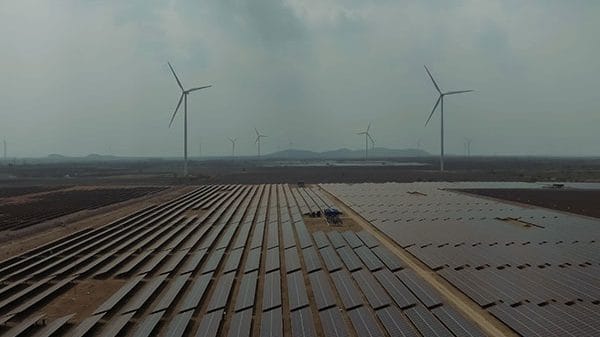The Solar Energy Corporation of India has, over time, adopted a cautious approach to project ownership and control in its procurement processes. Its February 2025 Request for Selection for 500 MW of solar PV capacity continues this trend, requiring bidders to disclose the complete beneficial ownership structure at the time of bidding. Further, the guidelines prohibit any change in control once the Power Purchase Agreement is signed. These are based on guidelines issued by the Ministry of Power.
The conditions in the tenders are a reflection of the larger policy obsession in India to uncover the ultimate beneficial owner behind every investment. The obsession stems from the presumption that any layer of corporate opacity must conceal fraud or malfeasance.
This view, however well-intentioned, fails to appreciate the reality of international finance and constrains how capital flows into infrastructure. The result is a regulatory stance that is ill-suited to the realities of infrastructure financing and project development, especially in a sector like renewable energy which is capital-intensive, fast-moving, and global.
Achieving the objectives
Consider the rule that requires bidders to provide complete information about their promoters or the definition of control. The definitions include entities that own the company directly or indirectly, which would entail several layers of entities that may own the company through different shareholding structures. It would have helped matters if SECI had articulated why it feels the need for these conditions, and what risks it is trying to mitigate. The absence of a formal regulatory impact assessment or a detailed explanation leaves stakeholders guessing. If one were to speculate, the rationale may fall into three categories:
Financial viability: SECI may want to be assured that the bidder has the financial wherewithal to see the project to completion, and transparency on beneficial ownership may help it to ensure that related entities are not blacklisted or in default of their financial obligations in other transactions. The restrictions on control may also be seen to help with financial viability and operational performance.
Competition integrity: SECI may want to ensure that a single corporate group does not exceed the maximum bidding capacity by using multiple affiliated companies, and that there is no collusion between entities that might compromise the bidding process.
National security: In an era of geopolitical tension, SECI may be concerned that opaque structures could mask investments from actors deemed hostile or untrustworthy.
While each of these reasons has merits, a fundamental rule of public policy should be to achieve the objectives at the least possible cost.
Entities bidding for such projects either bid themselves or set up a Special Purpose Vehicle (SPV). For financial scrutiny, SECI can simply demand proof of a minimum net worth and an undertaking from the bidder that no insolvency proceedings are pending or imminent. These steps focus on project viability without prying into ownership structures. Competition concerns can be resolved through both ex-ante and ex-post measures. Bidders can be mandated to sign a legally binding certificate stating their bid was developed independently and without consultation with any competitor. Reverse auctions, particularly when held in real-time, reduce the effectiveness of cartel behaviour. SECI can also set a confidential reserve price based on its own internal estimates. If the lowest bid is significantly above this price, all bids can be rejected, thwarting an attempt to fix prices at an artificially high level. Ex-post penalties, including disqualification from future bids, can act as strong deterrents against collusive behaviour.
Also read: India’s clean energy manufacturing strategy must move beyond ‘China+1’ to ‘India+ Many’
A more nuanced approach
The question of national security is an important one. However, current regulations permit up to 100 per cent Foreign Direct Investment (FDI) for renewable energy projects, under the ‘automatic route’. The Government of India, in 2020, placed restrictions on investments from countries that share land border with India in order to curb opportunistic takeovers and acquisitions of Indian companies. The SECI Request for Selection (Rfs) also acknowledges this policy framework and has integrated these restrictions in its bid document. If bidders have cleared these hurdles, then there may be little to be gained from insisting on a disclosure of all the layers of beneficial ownership, and including them in the definition of control.
This brings us to the fundamental nature of renewable energy financing. Projects are typically structured through funds, and consortiums that span multiple jurisdictions. Limited partners (LPs), general partners (GPs), and various institutional investors—including pension funds and sovereign wealth funds–often pool resources through layered, regulated, and audited structures. A global fund may have hundreds of underlying investors, many of whom insist on confidentiality. Mandating full disclosure of every beneficial owner could either violate international agreements or force such investors to look elsewhere.
Restrictions of the kind placed by SECI make it harder for developers to attract the kind of long-term institutional investment that is essential for scaling up. If India is serious about achieving its 500 GW non-fossil fuel capacity target by 2030, SECI’s procurement design will need to accommodate the realities of how projects are developed, financed, and transferred. The Ministry of Power and SECI need to take a more nuanced view of transparency. It should not mean unfiltered visibility into every last detail. Rather, it should begin with a clear articulation of objectives—whether financial security, competition, national security or some other objective—and search for the tool that best meets the specific objective.
India’s renewable energy story will be shaped not just by domestic policy but by the willingness of global investors to see the country as a reliable and predictable partner. SECI’s future tenders would do well to reflect this understanding.
Renuka Sane is managing director at TrustBridge, which works on improving the rule of law for better economic outcomes for India. She tweets @resanering. Views are personal.
(Edited by Aamaan Alam Khan)






